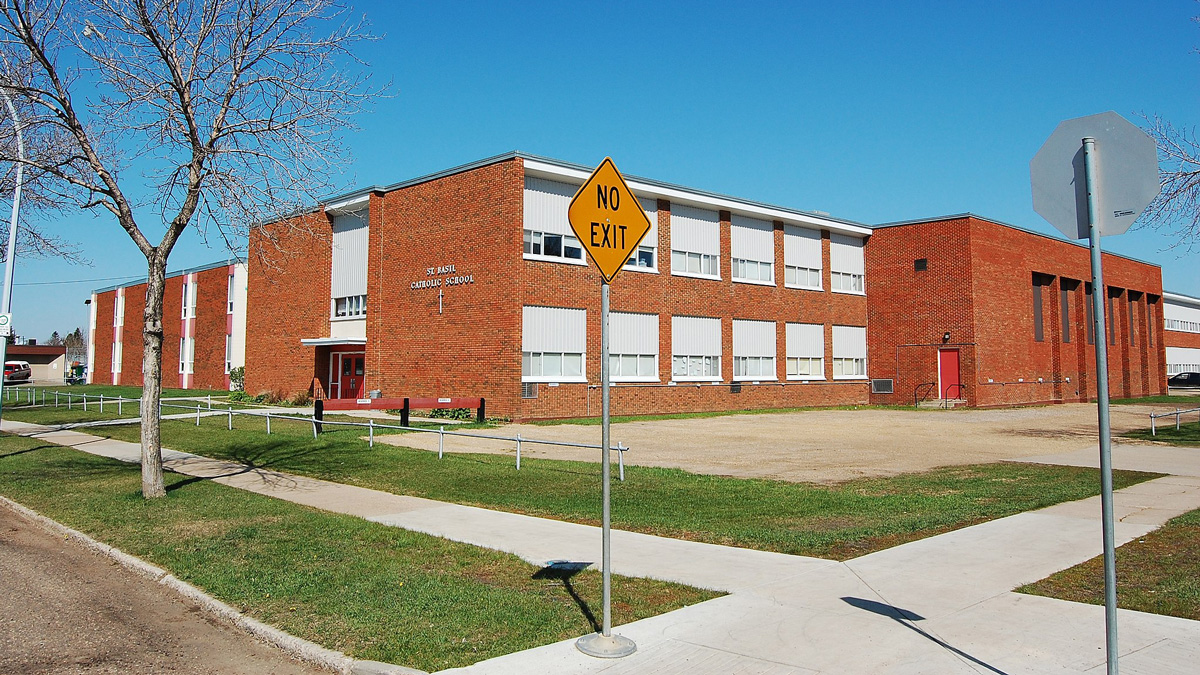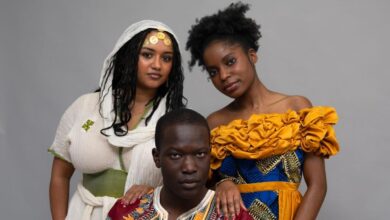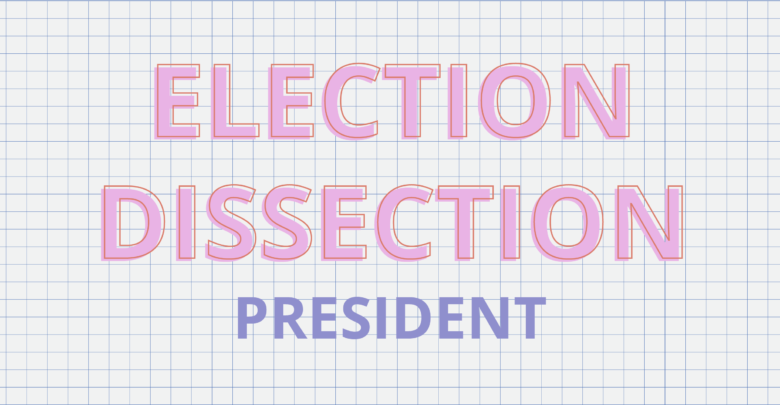 Lochlann Kerr
Lochlann KerrEvery year The Gateway hosts a panel to determine who should and who will win in each race for the Students’ Union elections to assist those undecided on who to vote for. Our election dissection panel is here with their insights on student politics and their takes on this year’s candidates.
Opinions expressed by the panellists do not reflect those of The Gateway.
The Panel
This year’s panel for election dissection included:
- Tom Ndekezi: U of A alumni, former arts and culture editor at The Gateway
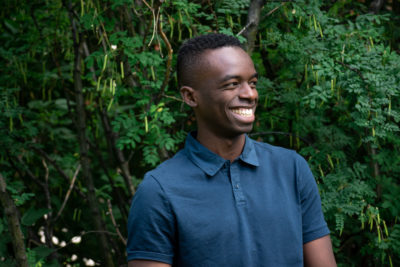
- Kyle Monda: U of A alumni, past Gateway contributor, GFC and Students’ Council councillor, past candidate for Students’ Union vice-president (student life)

- Alyssa Stoddard: third-year political science and English student, previous caucus researcher for the Government of Alberta (2019 – 2021)
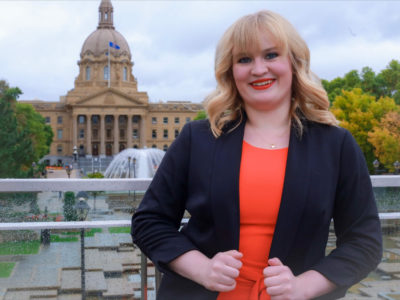
The Candidates
- Abner Monteiro, a sixth-year kinesiology student and current Students’ Union vice-president (academic).
- Emily Kimani, a fifth-year immunology and infection student and current Students’ Union vice-president (operations and finance).
- Haruun Ali, a second-year open studies student and current Students’ Council open studies councillor.
The panel began with a reflection of how the candidates have been promoting their campaign, with Stoddard pointing out the importance of social media.
“The presidential candidates have a fairly strong presence on campus and on social media,” Stoddard said. “I think that [Kimani] has an excellent social media presence. Her social media has been fantastic. I really enjoy getting to know her beyond her campaign policies and what she wants to do for the University of Alberta, and really get to know her as a person … I think [Monteiro] has a professional presence that maybe is better than [Kimani] or [Ali].”
Though Monda agreed with Stoddard about Kimani’s presence on social media, he raised concerns that her platform was “status quo.”
“I didn’t really see anything in [Kimani’s] platform that I thought was really inspiring or a big idea and I think I would’ve liked to see that,” he said. “I agree that she seems very personable and I like that she really humanized herself as a part of her campaign, but there wasn’t anything that really stood out for me.”
Stoddard pointed out that she felt that Ali’s campaign could’ve done more, rather than building off of existing policies at the U of A or the Students’ Union (UASU).
“My first impression of [Ali’s campaign] is that he lacks a bit of creativity with his policies,” she said.
Ndekezi noted that Ali’s presidential run was “really ambitious,” noting that most UASU presidential candidates usually begin their career at the UASU with a different vice-president position before running for president.
“Going through the platforms, I struggled to find really anything that set people apart from each other,” Ndekezi said. “I think for a lot of students it may come down to, ‘do we want to elect people we’ve already seen before…’ or … the new guy?”
An idea that stood out to Monda were Ali’s ideas about advocacy and rapid tests for campus.
“I really liked his emphasis on organizing and he also talked about working to procure rapid tests on campus, which I thought was a really interesting idea,” Monda noted about Ali’s campaign. “But then [Ali] also talked about fundraising from alumni from the UASU and holding an annual fundraising gala, and this is also a road we’ve gone down before that has never worked out well.”
Monda pointed out some other distinctions in the candidates’ platforms, specifically pointing out Monteiro’s proposal to remove final exam requirements, something that Ndekezi also found to be interesting, though he wished for more explanation. The transit safety proposals in Monteiro’s platform were also a point of difference.
“As the Students’ Union is such a big stakeholder in the U-Pass system, we actually have a lot of leverage over Edmonton Transit System (ETS), and we tend not to use it that much,” Monda said. “We’re such a single big funder to them, so I like that [Monteiro] was talking a lot about that.”
Ndekezi brought up a question from Monteiro during the residence forum to the other candidates about the lack of transit safety on their platforms.
“[Kimani’s] response was really good,” he noted. “Yeah, we want to make ETS a safer place, but that doesn’t necessarily mean having more cops on campus. I think that’s something a lot of students can resonate with.”
However, Monda found it conflicting that Monteiro’s platform was “embracing the corporate side of the [UASU] and their loyalty system, but also wanting to be more of a [political] organizer,” highlighting the persistence of UASU perks throughout Monteiro’s platform. Monda also voiced concerns about Monteiro’s platform promise to give faculty associations more autonomy when it comes to political policy.
“This has been a big mess in the past every time the [UASU] has gone down this road,” he said. “I think this is a can of worms just not worth opening.”
Ndekezi expressed his concern that all presidential candidates seemed to focus their attention on the upcoming provincial elections, with less thought about how to work with the current government. However, he noted that Monteiro seemed more likely to work with the government, something that Stoddard also agreed on.
“It’s interesting that I found [Monteiro] and his campaign as less of an attack to the government and administration, but work collaboratively for the benefit of all students,” Stoddard said. “I think [Kimani] has that approach as well, so I appreciate that, but I think [Ali’s] approach is very strong, very negative already.”
“I do think the government and administration rarely [have], but they have listened to students and they have worked with the UASU… I think the [collaborative] approach is much better than going in with a completely negative approach.”
She noted all presidential candidates lacked discussion on how they would be communicating with the province’s official opposition, and would’ve liked to see more of that. Stoddard also noted that Kimani being a female candidate was “refreshing,” and made her “excited” to see Kimani’s campaign.
“I think that gender representation is something we need on campus and something that I think she can, in her other roles as well, do a great job on the UASU to provide equity and being a strong voice for female students,” she said.
The panel agreed that there was a lot of overlap between the candidates’ platforms, and because of the tiny differences between their platforms, it could come down to candidates’ social media presences and previous experience.
Who will win: three votes for Emily Kimani
Who should win: three votes for Abner Monteiro



